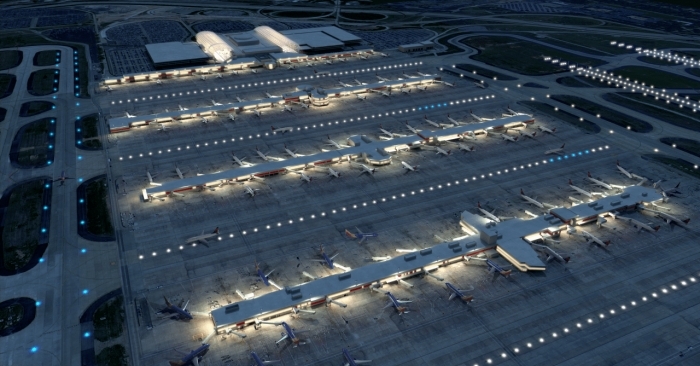Kale study at Atlanta Airport shows environmental benefits of digitisation
August 26, 2021: A study by Kale Info Solutions, the North America division of Kale Logistics Solutions, on the impact of digitisation at Atlanta Airport, Georgia, USA, has demonstrated CO2 and fuel savings, as well as reduced labour costs, and close to 2,000 man-hours saved.

August 26, 2021: A study by Kale Info Solutions, the North America division of Kale Logistics Solutions, on the impact of digitisation at Atlanta Airport, Georgia, USA, has demonstrated CO2 and fuel savings, as well as reduced labour costs, and close to 2,000 man-hours saved.
The study showed that by using digital tools the Atlanta Airport Community, which is powered by Kale’s digital solutions, had saved nine tonnes of CO2 from being processed since the beginning of 2021: the equivalent of planting more than 400 trees.
The study looked at 1,839 shipments, 389 trucks, and 680 tonnes of cargo going through Atlanta Airport for the first seven months of 2021.
In total, more than 5,650 litres of fuel, $69,000 of labour costs, and 1,945 man-hours were saved by using Kale’s slot management tool to organise and facilitate the arrival and loading of trucks at the airport.
Kale’s Single Window System used for airport and maritime community systems enables electronic communications between multiple supply chain stakeholders.
Amar More, president and chief executive officer, Kale Info Solutions, USA, said, “We want to add momentum to the global sustainability drive and be a major influencer for airports, ports, and supply chains across the world to go paperless, improve digital connectivity, and reduce carbon emissions.”
“We estimate that digital solutions like the ones developed by Kale can reduce paper usage by eight million pieces of paper annually at an airport – the equivalent of planting 1,500 trees – and reduce cargo dwell times by up to 70 percent, lowering carbon emissions and fuel expenses.”
“Businesses across all modes in the supply chain can improve their environmental impact and internal operations by adopting IT solutions that provide greater transparency, better planning, and paperless processes,” added Amar.
Kale recently launched a maritime single window IT solution providing a single point of data entry for documentary requirements and procedures at ports as part of its ongoing drive to digitise supply chains.
Another recent Kale study at Tuticorin VOC Port, Tamil Nadu, India, where the Kale Port Community System is used, showed that a port handling around one million twenty-foot equivalent units (TEUs) can save enough carbon to plant the equivalent of up to 4,000 trees annually by adopting paperless operations.
Vineet Malhotra, co-founder and director, Kale Logistics Solutions, said, “CO2 emissions from trucks on the port premises can be reduced by up to 75 percent through improved management of truck wait times by using a slot management system.”
The digital supply chain solutions developed by Kale integrate into existing back-office systems to improve business operations and are suitable for different modes.
In addition to improved environmental impacts, businesses that have adopted solutions from Kale have reported productivity increases of up to 70 percent.



